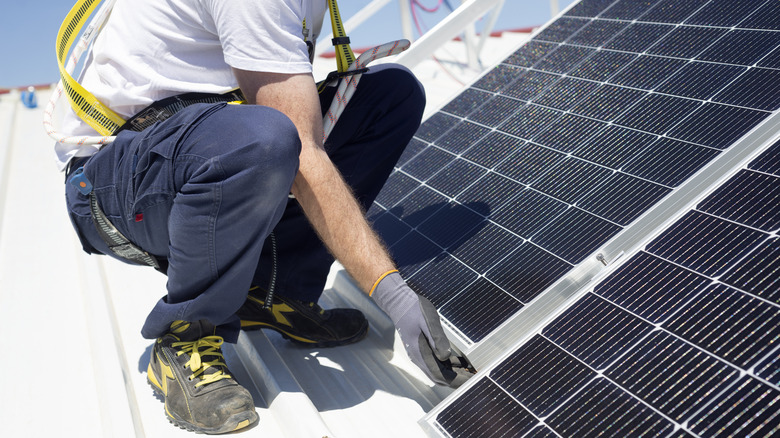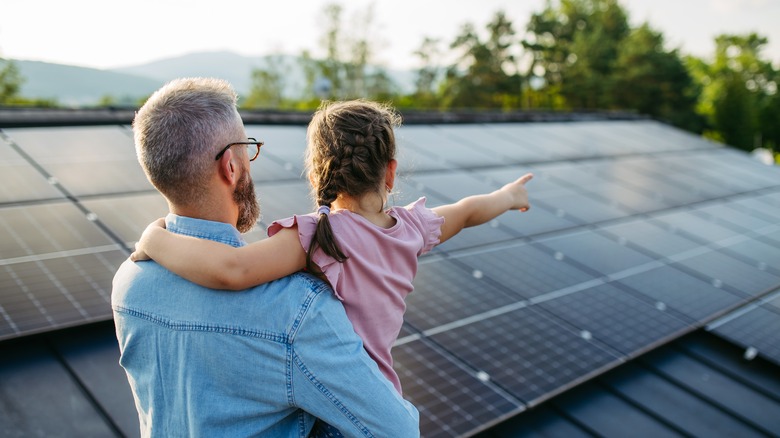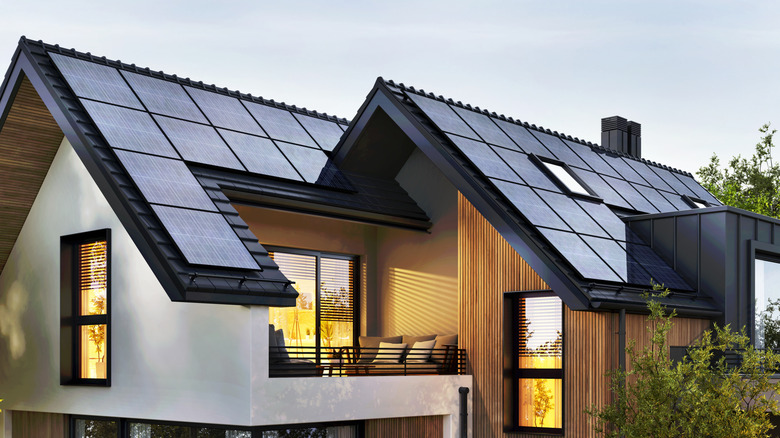Can You Legally Install Your Own Solar Panels? It Depends
Harnessing solar energy to generate power is becoming more mainstream every day. People around the world utilize high-tech panels to enable their homes to run more efficiently than with traditional power. Unless you're thinking of buying a house with solar panels, you may be considering a DIY installation. It's legal to do so, but you'll have to be sure you're following your local building codes.
You need to be sure you know the laws governing such an installation, especially with your homeowner's association, if you have one, as they can vary by state. You'll also need to get the proper permits before you begin work. Once you're done, you'll have to pass all of the required inspections. This includes not only structural, but electrical too, so you don't have to worry about accidentally missing any potential problems. This means you'll be dealing with licensed electricians or even your local power company, because in some cases, you'll be required to get their approval as well.
Even if your solar panel system is functioning and everything's working properly, without the inspections being completed, you likely won't be able to legally use it. Plus, you might have to pay fines, and you may even be required to take those panels down if they don't meet requirements. In the end, it's best to know the laws before spending the money on materials and the time on doing the work.
Understanding solar incentive programs
Depending on the state you live in, you may have a difficult time installing your own solar panels. Some states, including Kansas, North Dakota, and Oklahoma, make it harder than others. This can be done through higher taxes, a lack of incentive programs, or even monthly charges for metering. Plus, some states don't participate in the Solar Renewable Energy Certificate (SREC) initiative, which can help reduce your energy bill. Without such incentives and state support, DIYers may find it tough to move forward, especially since solar panels take a while to pay for themselves.
But if you live in Arizona, Colorado, or Minnesota, you should have an easier time, as these states are among the leaders in the U.S. for solar power incentives. However, be sure you read the fine print regarding solar panel installation in your state. It's possible that you may only be eligible for discounts and incentive programs if the panels are installed by a third party.
Your exact location can also determine your eligibility for incentive programs, based on the grid. Grid-tied systems connect to your city's power grid, while off-grid systems operate independently. A grid-tied setup offers some money-saving benefits, but may require professional installation. An off-grid system will likely not give you access to incentive programs, but it could be easier to navigate and have fewer installation restrictions.
Choosing the right solar panels
When choosing the best solar panels you can buy in 2025, you have options. If you're installing them yourself, you might want to go with thin-film panels. They're easy to handle and can be installed on homes, commercial buildings, and even recreational vehicles (RVs). They're affordable, but they're not very efficient, so you'll need more of them, and they only last around 10 to 20 years. So thin-film panels may not be right for your home.
If you want to stay on budget and get reliable solar panels for your house, you can choose the still affordable Polycrystalline. These panels are great in mild to colder temperatures, which is perfect if you deal with snowy winters. They're more efficient than thin-film, which means you won't need as many to power your home. Their lifespan of over 20 years is also better than their thin-film counterparts. But Polycrystalline isn't the top of the line when it comes to solar panels.
Monocrystalline panels are considered the best on the market. They're the most efficient, so they're perfect if you don't have much space on your roof. They have a longer lifespan than Polycrystalline, lasting up to 40 years, so you'll have that peace of mind as well. But Monocrystalline can underperform in colder temperatures, which could be a problem if you live in a chilly climate. Plus, you'll spend more, as Monocrystalline is the most expensive option you can buy.


